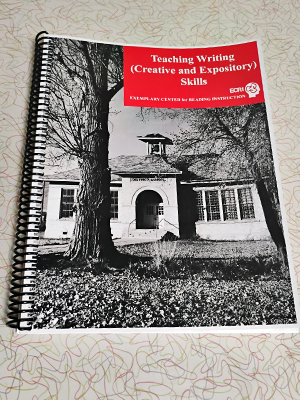
Teaching Writing (Creative and Expository) Skills, Book 1
Teaching Writing, Book 1, includes 36 sets of directives to teach at least 120 lessons. The teacher will be able to teach many writing skills with the use of this text.
$45.95
This book is spiral bound so teachers can hold an open book while teaching.
Item Description
Teaching Writing, Book 1, includes 36 sets of directives to teach at least 120 lessons. The writing skills the teacher will be able to teach with the use of this text include: making sentences tell more; substituting descriptive words for "said" and "walked;" identifying a paragraph; writing so readers can understand and infer; writing a paragraph without irrelevant sentences; quoting sources; writing opinions; judging qualifications to write; learning to proof and correct; writing using emotionally charged words and the common touch, bandwagon, testimonial and card stacking techniques; writing letters; describing what is seen, heard, smelled, tasted and felt; describing a character; writing fiction about real people or events; writing fiction that is true to life; writing a fairy tale, tall tale, fable, myth, legend, epic; rearranging words in sentences; using a simile, metaphor, hyperbole, personification, onomatopoeia; developing a story plot and revising what is written.
ECRI's experience has shown that if the process and skill of writing is taught from the beginning of a child's school experience, and if the child is given daily writing activities, writing becomes as natural to the child as reading. A model is provided for students to follow as they are taught each skill.